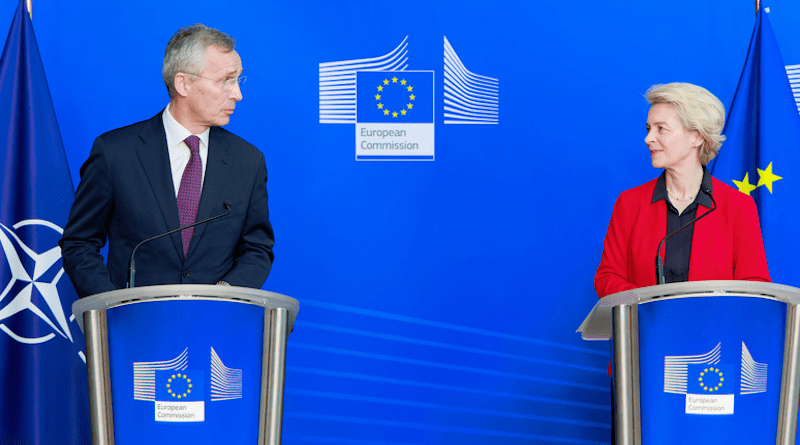NATO And EU Skeptical Of China’s Peace Proposal For Ukraine
By EurActiv
By Alexandra Brzozowski
(EurActiv) — China’s attempt to play the role of neutral peacemaker in the Ukraine war fell flat on Friday (24 February) as both NATO and the EU appeared to reject Beijing’s credibility as a mediator.
Earlier on Friday, the Chinese foreign ministry published a 12-point, 892-word “position paper” spelling out Beijing’s view on how it sees a settlement to what it calls the “Ukraine crisis”, falling short of calling it a war.
European Commission President Ursula von der Leyen said China’s attempt to be seen as a peace broker cannot be seen as neutral.
“It is not a peace plan, but principles that they shared – You have to see them against a specific backdrop, and that is the backdrop that China has already taken sides by signing, for example, an unlimited friendship right before the invasion,” she said.
“So we will look at the principles, of course, but we will look at them against the backdrop that China has taken sides,” von der Leyen added.
Asked about China’s position paper, EU foreign policy spokesperson Nabila Massrali told reporters in Brussels, it “doesn’t take into account who is the aggressor and who is the victim of an illegal and unjustified war of aggression”.
Massrali also called the Chinese position paper “selective and insufficient about their implications for Russia’s war of aggression against Ukraine.”
“China’s position builds on a misplaced focus on the so-called ‘legitimate security interests and concerns’ of parties, implying a justification for Russia’s illegal invasion, and blurring the roles of the aggressor and the aggressed.”
Speaking alongside Estonian Prime Minister Kaja Kallas and von der Leyen in Tallinn, NATO Secretary-General Jens Stoltenberg joined in the scepticism towards Beijing’s missive.
“China doesn’t have much credibility (…) they have not been able to condemn the illegal invasion of Ukraine,” Stoltenberg told reporters.
The NATO chief also referenced Beijing’s signing of a ‘friendship’ agreement with Russia’s President Vladimir Putin only days before the invasion.
Stoltenberg also said the alliance would be closely monitoring China’s activities, adding that there have been “signs and indications that Beijing may be planning and considering to supply military aid to Russia,” although NATO has not seen “any actual delivery of lethal aid.”
China sending lethal aid to Moscow would be a “very big mistake, (…) this is very serious,” he said.

